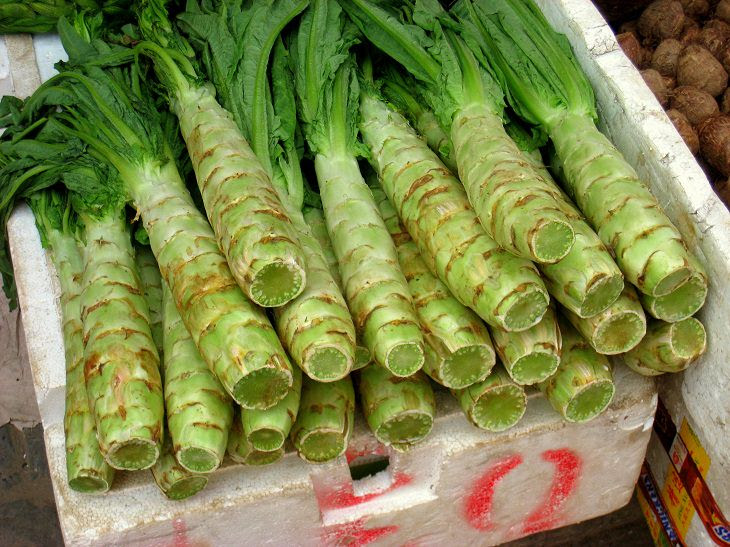Home Remedies to Treat Dust Allergies
Whether
it’s the pollen in spring or the dust around your home in the winter,
each season brings along its set of allergy triggers. With every change
of season, you’re greeted by bouts of uncontrollable coughing and
sneezing. So, what exactly can you do to tackle this annoying problem?
Below you’ll find some amazing remedies that can help you treat your
dust allergies naturally.
What Causes Dust Allergies?
Dust mites are the main culprits behind dust allergies. Below are some other causes:
• Cockroaches
– There are small components present on cockroaches that can cause dust
allergies in some individuals when inhaled.
• Mold – This is a kind of fungus that has spores that are capable of floating in the air. These spores can cause dust allergies.
• Pollen – The different types of pollen that comes from trees, grasses, and flowers can trigger allergic reactions in some people.
• Animal fur and feathers – Pets are another causes of dust allergies. Their skin flakes, urine, and saliva are potential allergens, especially when combined with dust.
• Mold – This is a kind of fungus that has spores that are capable of floating in the air. These spores can cause dust allergies.
• Pollen – The different types of pollen that comes from trees, grasses, and flowers can trigger allergic reactions in some people.
• Animal fur and feathers – Pets are another causes of dust allergies. Their skin flakes, urine, and saliva are potential allergens, especially when combined with dust.
What Are the Signs and Symptoms of Dust Allergies?
The most common symptoms are:
• A runny nose
• Itchy and red eyes
• Sneezing and sniffing
• Coughing and wheezing
• Shortness of breath
• Tightness in the chest
How to Cure Dust Allergies Naturally
The most common symptoms are:
• A runny nose
• Itchy and red eyes
• Sneezing and sniffing
• Coughing and wheezing
• Shortness of breath
• Tightness in the chest
How to Cure Dust Allergies Naturally
1. Eucalyptus Essential Oil
You Will Need
3-4 drops of eucalyptus essential oil.
What You Have to Do
Add a couple of drops of eucalyptus essential oil to a diffuser and inhale the vapors.
How Often Should You Do This?
Do this 1-2 times per day.
Why This Works
The soothing and anti-inflammatory properties of eucalyptus oil make it effective in treating congestion and allergies. These therapeutic properties are mainly due to the presence of eucalyptol in the oil.
3-4 drops of eucalyptus essential oil.
What You Have to Do
Add a couple of drops of eucalyptus essential oil to a diffuser and inhale the vapors.
How Often Should You Do This?
Do this 1-2 times per day.
Why This Works
The soothing and anti-inflammatory properties of eucalyptus oil make it effective in treating congestion and allergies. These therapeutic properties are mainly due to the presence of eucalyptol in the oil.
2. Honey
You Will Need
2 teaspoons of raw honey.
What You Have to Do
Consume two teaspoons of raw honey.
How Often Should You Do This?
Do this twice a day.
Why This Works
Local and raw honey often contains small amounts of pollen, which is believed to help with dust allergies. This is useful for those suffering from season allergies as regular consumption of small amounts of pollen via raw honey may make an individual less sensitive to it over time.
2 teaspoons of raw honey.
What You Have to Do
Consume two teaspoons of raw honey.
How Often Should You Do This?
Do this twice a day.
Why This Works
Local and raw honey often contains small amounts of pollen, which is believed to help with dust allergies. This is useful for those suffering from season allergies as regular consumption of small amounts of pollen via raw honey may make an individual less sensitive to it over time.
3.Apple Cider Vinegar
You Will Need
• 2 teaspoons of apple cider vinegar
• 1 glass of warm water
• Honey (optional)
• 1 glass of warm water
• Honey (optional)
What You Have to Do
1. Add two teaspoons of apple cider vinegar to a glass of warm water and mix well.
2. You can also add a little bit of honey for flavor.
3. Consume this solution.
Why This Works
The anti-inflammatory properties of apple cider vinegar, along with its expectorant nature, are quite helpful when it comes to treating dust allergies and the accompanying cold-like symptoms. It also has antimicrobial properties that can prevent the aggravation of allergies. It’s a great natural substitute for the store-bought antihistamines used for treating dust allergies.
1. Add two teaspoons of apple cider vinegar to a glass of warm water and mix well.
2. You can also add a little bit of honey for flavor.
3. Consume this solution.
Why This Works
The anti-inflammatory properties of apple cider vinegar, along with its expectorant nature, are quite helpful when it comes to treating dust allergies and the accompanying cold-like symptoms. It also has antimicrobial properties that can prevent the aggravation of allergies. It’s a great natural substitute for the store-bought antihistamines used for treating dust allergies.
Labels: Aloe vera, apple cider vinegar, breathlessness, cough and cold, dust allergies, eucalyptus oil, ghee/ clarified butter, home remedies, Honey, itchy eyes, peppermint tea, runny nose, Turmeric, wasabi, wheezing


0 Comments:
Post a Comment
<< Home